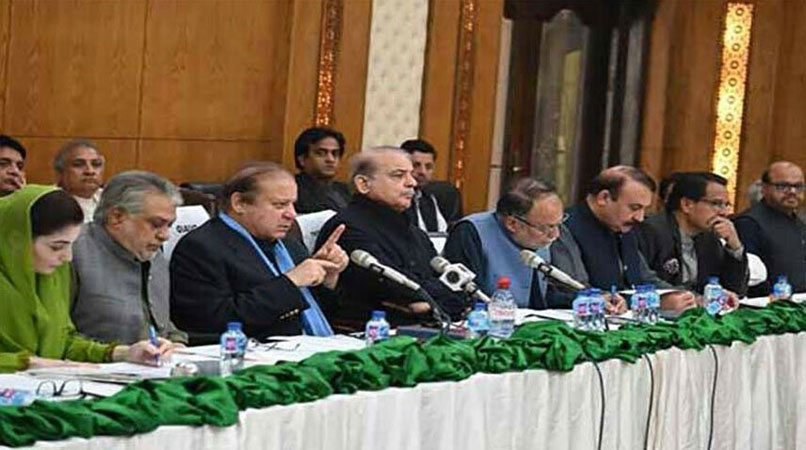 President of the Pakistan Muslim League-Nawaz (PML-N), Nawaz Sharif, urged for significant reductions in government expenditures to enhance public relief on Saturday, as reported by Radio Pakistan.
President of the Pakistan Muslim League-Nawaz (PML-N), Nawaz Sharif, urged for significant reductions in government expenditures to enhance public relief on Saturday, as reported by Radio Pakistan.
In a meeting held in Lahore, the PML-N leadership, including Prime Minister Shehbaz Sharif, Deputy Prime Minister Muhammad Ishaq Dar, and Punjab Chief Minister Maryam Nawaz, convened to evaluate ongoing relief efforts by both federal and Punjab governments. The discussions at the meeting covered various topics, including development projects and the broader political and economic situation of the country.
Planning and Development Minister Ahsan Iqbal addressed the media, revealing that the meeting focused on the relief measures related to electricity bills provided by the Punjab and federal governments. He noted that Nawaz’s directive to reduce government spending aims to offer more financial relief to citizens.
Furthermore, Iqbal mentioned that the PML-N supremo has also instructed a comprehensive overhaul of the local bodies’ law, aligning with the party’s manifesto commitments.
Separately, senior Punjab Minister Maryam Aurangzeb has announced detailed relief measures for electricity consumers across the province, aimed at reducing their electricity bills.
The relief, which includes a reduction of Rs14 per unit for consumers using 201 to 500 units, has already begun to take effect. Approximately 3.5 million consumers in Lahore, Multan, Faisalabad, Gujranwala, and Islamabad are benefiting from this initiative.
This follows Prime Minister Shehbaz Sharif’s earlier announcement of a RS 50 billion relief package for those consuming up to 200 units of electricity.
Punjab Chief Minister Maryam Nawaz has been praised for achieving what many considered impossible, providing relief in challenging economic times. She reiterated her commitment to easing the financial burden on the public and continuing to deliver on the promises made by the PML-N leadership. The relief package is part of a broader plan to reduce electricity costs, with future initiatives set to include solar energy solutions.
The government plans to offer free solar systems to consumers using up to 200 units and interest-free solar systems on easy instalments for those using 201 to 500 units.